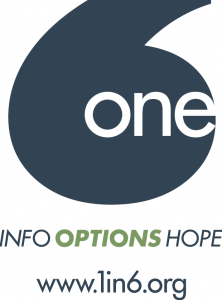You can leave this site quickly.
Learn more about Internet safety.
1in6 Thursday: Do you know a man?
Do you know a man struggling with relationships, work, school, depression, substance abuse? Are you going to see him over the upcoming holidays?
Or perhaps you are that man and will be visiting loved ones next week over Thanksgiving or Chanukah.
Lots of things can inspire a man to want to improve his life. Disappointment over a failed relationship, a job or career setback, remorse about an act of violence or even the unexpected hollowness of a long-sought success can all prompt self examination.
In more than two decades working with men encountering those challenges, I’ve learned that creating safety, support and compassion are key ingredients for a positive result.
Unfortunately, such ingredients are often absent at holiday gatherings The socialized expectations of men with which most families are raised, often discount men’s need for those encouragements and discourage men from even engaging in any self assessment. We men are taught from a young age to just grit our teeth and move on to the next challenge.
But, together, we can change that.
Research, like the Adverse Childhood Experience Study, has shown us that, for men, as well as for women, childhood traumas—like sexual, physical and emotional abuse and neglect, violence, mental illness or substance abuse in the home—are often at the heart of many adult problems. Men and women who had experienced four or more of those childhood traumas, compared to those who had experienced none, had four-to-twelve-fold increased health risks for alcoholism, drug abuse, depression, and suicide attempts as well as higher risk for heart disease, cancer and obesity.
Importantly, trauma creates a risk, not a certainty. Though these experiences increase the adult risk for a range of negative physical, emotional and behavioral outcomes, the research also shows that addressing the resulting trauma can greatly diminish that risk.
My current work with men and my own experience recovering from childhood sexual abuse gives me a particular interest in helping other men recognize and overcome the negative consequences of unwanted or abusive childhood sexual experiences.
So, I wonder sometimes, do my own biases cause me to assume sexual abuse is the cause for a given individual’s problems, just because symptoms that often result from sexual abuse are present? I’m reminded of Abraham Maslow’s phrase, “"if all you have is a hammer, everything looks like a nail"
But I’m pretty sure, that even for me, the opposite bias still dominates—no matter how many times we hear that 1 in 6 men experienced sexual abuse, it’s inconceivable to most of us, that sexual abuse of boys is as prevalent as that. No matter how many men—including athletes, entertainers, politicians, business people and regular “Joes”—disclose that their lives were dramatically affected by sexual abuse, our collective default seems still to be to see men’s dysfunction as a result of some character flaw. Few of us will look around the football stadium next week and think, “Gosh, it’s likely that 1 in 6 of these men, whatever their problems, are dealing with the effects of having been sexually abused!”
But they are!
Trauma-informed treatment has started to take hold in many parts of the human services field, where providers are learning to ask “what happened to you,” instead of “what have you done?” This doesn’t mean tolerating or excusing abusive or harmful behavior. Quite the contrary, it means setting firm limits around an individual’s hurtful actions with compassion instead of shaming.
Maybe this year is the time to bring trauma-awareness back home. Here are a few guiding principles that could change the conversation around the holiday table.
- Difficult-to-understood behaviors are likely trauma-driven—an attempt to cope.
- Trauma is so common, it’s safer to assume someone has experienced trauma than that they haven’t,even when it’s a family member and you’re not aware of the trauma.
- For those who have experienced trauma, that experience may well be, consciously or unconsciously, pervasive and central to their world view.
- The goal to help support change for a man or woman who’s struggling, should be to return a sense of empowerment and safety—without hurting others.
Now don’t get me wrong. I’m not advocating tolerating abusive behavior or engaging in therapy sessions over the latkes or the turkey and stuffing; or necessarily even directly discussing childhood trauma over the holidays. I’m just suggesting viewing those we love (or struggle to love) through a different lens.
Who knows, a changed perspective may help us find that often-elusive peace, comfort and even joy at our gatherings during this holiday season.
 - By Peter Pollard
- By Peter Pollard
Peter Pollard is the Training and Outreach Director for 1in6, Inc. Peter previously worked for 15 years as a state, child-protection social worker and was the Public Education director at Stop It Now! Since 2003, he has served as the Western Massachusetts coordinator for SNAP (Survivors Network of those Abused by Priests) and also does work for a Certified Batterers Intervention Program.
The mission of 1in6 is to help men who have had unwanted or abusive sexual experiences in childhood live healthier, happier lives.
1in6's mission also includes serving family members, friends and partners by providing information and support resources on the web and in the community.
Joyful Heart and 1in6 invite you to visit 1in6.org for info, options and hope, and to learn more about our partnership and Engaging Men initiative here.
The views expressed above are not necessarily those of the Joyful Heart Foundation or 1in6.




Your Voices